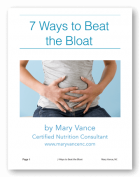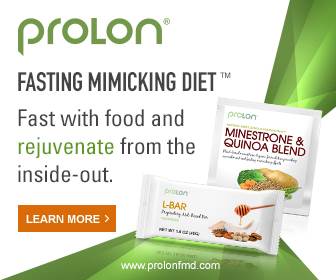It’s not your diet.
It’s not even your exercise program.
What is the one factor that MUST be in place for optimal health?
(I’ll wait here while you think).
It’s…. your lifestyle. How you live your life. Your daily habits, your routine, how well you sleep, how you manage your stress, even how you chew your food.
“Vitamin L,” or lifestyle, accounts for about 80 percent of our health promotion, and it’s the best way to reduce stress, prevent aging, and achieve longevity.
If you’re working to heal an imbalance, you could be on the most perfect supplement protocol in the world while eating the cleanest diet, but if you’re not sleeping or you can’t manage stress, your body can’t heal fully or achieve balance.
I see this scenario often: a new client will put in a request to work with me, and she’s worked with many other practitioners. Naturopaths, functional medicine practitioners, acupuncture, often other nutritionists or health coaches. I’m her last hope because no one has been able to help her. A lightbulb usually goes off for me when I hear this because I know something has been overlooked, and it’s probably not the diet and supplements. More often than not, the person hasn’t been asked about stress, sleep, trauma, emotional wellness, and addressing these factors makes all the difference for healing.
Our goal as holistic health practitioners is to help a person feel better as quickly as possible while we help him or her rebalance the body. Naturally, diet changes and a solid supplement protocol to help address deficiencies as the person heals are the places to start. But the holistic model means addressing imbalances in one’s physiology, diet, AND emotional wellbeing. If any one of those factors is lacking, true healing can’t occur.
If you have a chronic illness, ask yourself how you got there. Was your illness or imbalance preceded by a stressful event like a death or a trauma? (a pattern I see all the time). Have you addressed the trauma? It’s amazing how the body holds onto stress when we stuff it away and don’t address the emotional aspects of traumatic events. This stuffed stress eventually manifests as imbalances that can turn into chronic illness if not addressed. I very often see people with IBS or similar digestive issues that have surfaced after chronic stress, an accident, or a stressful event. It’s not a coincidence.
If you’re frustrated because you’re not getting well, or if you just want to live your best life, don’t neglect your lifestyle habits.
Lifestyle Factors for Optimal Wellness
The holistic health model focuses on diet, metabolic balance (hormones, digestion, detox, immune health), and lifestyle. Here are the factors to address. Just tackle one at a time.
- Sleep gets top billing because this is when the majority of healing takes place. Your immune system is hard at work scavenging for abnormal cells; your detox system is neutralizing toxins; and even your brain is flushing toxins while you sleep. Skimping on sleep contributes to weight gain, hormone disruption, and sugar cravings. Aim for 8 hours. Here are some helpful tips for good sleep hygiene.
- Stress management: we all have stress in our lives, and we’ll all deal with stressful events. That’s life. But your health doesn’t have to unravel as a result. Self care is so important. Find time every week (or every day) to journal, meditate, work in your garden, whatever it is that brings you joy. If you’re going through a stressful event or have experienced a trauma, here are some tips for keeping your health intact.
- Blood sugar control: this is one factor that’s easy to control. Simply eating in regular intervals assures your body that you’re not starving and that you’re not in fight-or-flight mode. Skipping meals or eating erratically means your blood sugar levels are spiking and crashing, and that contributes to irritability, fatigue, poor concentration, and high cortisol levels which can increase fat storage and inflammation. Eat every 4-5 hours, or eat regularly.
- Emotional wellbeing means dealing with your shit. We all have it. If you’re holding onto anger and frustration, or you’re stuffing away unpleasant issues, believe me, they will surface in one way or another. It could be binge behavior (food, alcohol, drug use), anger, insomnia, or even digestive issues. Dealing with your issues is hard. No one wants to feel bad, and that’s why we run from unpleasant feelings. But dealing with your stuff can be incredibly rewarding and freeing, and most of my clients see the biggest turnaround when they address the emotional work.
- Movement: your body was designed to move. So get moving! Whether it’s a yoga class, a 15 minute walk, or high intensity interval training (HIIT), get some movement every day. You don’t need to pound the pavement for hours (or even one hour). I do a combo of 15-20 minute HIIT training workouts, strength training, yoga, and outdoor activities. Mix it up!
- Mindful eating: chew thoroughly and eat slowly. Don’t eat standing up. Focus on your meal and give thanks for the nourishment it’s giving you. Don’t eat in front of the TV or at your desk. Take 15 minutes if that’s all you have and focus on this time to nourish yourself. At dinner, light candles and make mealtime special.
An assignment I often give my clients is to do something that brings them joy every day. Women especially are socialized to put everyone else’s needs ahead of their own, and I so often hear I don’t have time. But your health is your most important asset. So take just 5 minutes per day if that’s all you have and do something you enjoy, whether it’s singing at the top of your lungs, meditating, or soaking your feet in epsom salt and lavender. Even better if you can add a 30 minute massage weekly, or a half day where you unplug and just have fun. We’re working 12 hour days along with juggling and coordinating so many activities; it’s no wonder we’re burned out.
Whether you’re you’re working to heal a chronic health condition or just be the healthiest you can be, don’t neglect vitamin L, especially if you’ve hit a plateau in your healing process. Your lifestyle habits are the key to optimal wellness.

Mary Vance is a Certified Nutrition Consultant and author specializing in digestive health. She combines a science-based approach with natural therapies to rebalance the body. In addition to her 1:1 coaching, she offers courses to help you heal your gut and improve your health. Mary lives in San Francisco and Lake Tahoe in Northern California. Read more about her coaching practice here and her background here.







